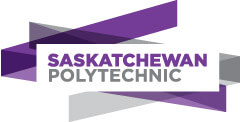About Agricultural Equipment Technician in Saskatchewan Polytechnic
Program Overview
Agricultural Equipment Technicians diagnose, repair, modify, overhaul, service and maintain some of today’s most technologically advanced machines—tractors, combines, cultivators, seeders, sprayers. If you like working with ag equipment and troubleshooting mechanical problems, it’s a great career choice.
You’ll find your skills are in demand at leading equipment dealerships. You might work as a technician in a fully-equipped service centre or travel to farms and rural areas on service calls. You can also transfer your skills to other industries, such as mining and construction.
Agricultural Equipment Technician is a one-year certificate program offered at Saskatchewan Polytechnic Saskatoon campus . Get hands-on training in:
- air conditioning, heating and electrical
- engines, fuel systems, hydraulics, power trains
- gas and arc welding
- harvest, hay and forage equipment
- onboard computer and global positioning systems (GPS)
- seeding, tillage, sprayers and applicators
- shop procedures and safety
- tractor set-up and pre-delivery
Career and Salary Information
Your Career
Agricultural Equipment Technicians are in demand at equipment dealerships. There are also opportunities with large farming operations, custom combine companies and in short-line agricultural equipment vendors. Your skills are also transferable to other industries, including mining-manufacturing and construction.
Academic qualification equivalents:
- Secondary School Diploma or equivalent, include one English, Grade 12 (ENG4C or ENG4U), minimum 60%
English language requirements (one of the below):
- IELTS : Overall minimum score of Band 6.5 with a minimum score of 5.0 in each component.
- TOEFL : An overall minimum score of 81 on the Internet-based Test of English
- PTE : A minimum score of 63 with minimum component scores of 50.
Saskatchewan Polytechnic Highlights
| Type |
Public |
| Campus Setting |
Urban |
| Application mode |
Online and Paper mode available |
| Graduation rate |
62% |
| Acceptance rate |
96% |
| Number of Students |
16,008 |
| Overall cost of living |
14,762 CAD |
| Academic calendar |
Semester based |
| % of International students |
6% |
| Number of campuses |
4 |
| Medium of instructions |
English |
| Undergraduate Tuition fee |
14,044 CAD |
| Postgraduate Tuition fee |
16,426 CAD |
| Cost of living |
694 -1147 CAD per month |
Saskatchewan Polytechnic First-Year Tuition Fees And Living Expenses For International Students
Over the course of one academic year, the following graph displays tuition and living expense estimates in Canadian currency for one full-time international undergraduate student. Please bear in mind that these are only estimates; actual pricing will vary depending on your needs and preferences. Other factors to consider include currency changes, visa and study authorization fees, and vacations back home.
- For international students, the overall fees will range from:-
| Particulars |
Amount |
| Administrative fees |
50.00 to 150.00 CAD |
| Application fees |
150 CAD |
| Student association fee |
95.00 to 445.00 CAD |
| Non-refundable fee at the start) |
1,000 CAD |
| Tuition fee range |
6,195 to 18,089 CAD |
| Laboratory fee |
100.00 to 409.00 CAD with no fees for
some courses which do not have a lab service. |
| Books and Supplies |
200 to 3,725 CAD |
| Technology fee |
50 to 146 CAD |
- For a student of Saskatchewan Polytechnic the required financials (Cost of Attendance) can be:-
| Description of Financials |
Amount in CAD |
| Average cost of tuition |
11245.77 CAD |
| Cost of living |
10799.39 CAD |
| Application fee |
150 CAD |
| Estimated total (per year) |
22,195.16 CAD |
